things beyond resemblance
COLUMBIA THEMES IN PHILOSOPHY, SOCIAL CRITICISM, AND THE ARTS
COLUMBIA THEMES IN PHILOSOPHY, SOCIAL CRITICISM, AND THE ARTS
Lydia Goehr and Gregg M. Horowitz, editors
Advisory Board
| J. M. Bernstein | Eileen Gillooly |
| Nol Carroll | Thomas S. Grey |
| T. J. Clark | Miriam Bratu Hansen |
| Arthur C. Danto | Robert Hullot-Kentor |
| Martin Donougho | Michael Kelly |
| David Frisby | Richard Leppert |
| Boris Gasparov | Janet Wolff |
Columbia Themes in Philosophy, Social Criticism, and the Arts presents monographs, essay collections, and short books on philosophy and aesthetic theory. It aims to publish books that show the ability of the arts to stimulate critical reflection on modern and contemporary social, political, and cultural life. Art is not now, if it ever was, a realm of human activity independent of the complex realities of social organization and change, political authority and antagonism, cultural domination and resistance. The possibilities of critical thought embedded in the arts are most fruitfully expressed when addressed to readers across the various fields of social and humanistic inquiry. The idea of philosophy in the series title ought to be understood, therefore, to embrace forms of discussion that begin where mere academic expertise exhausts itself, where the rules of social, political, and cultural practice are both affirmed and challenged, and where new thinking takes place. The series does not privilege any particular art, nor does it ask for the arts to be mutually isolated. The series encourages writing from the many fields of thoughtful and critical inquiry.
ROBERT HULLOT-KENTOR
Collected Essays
things beyond resemblance
on THEODOR W. ADORNO
 COLUMBIA UNIVERSITY PRESS NEW YORK
COLUMBIA UNIVERSITY PRESS NEW YORK
Columbia University Press
Publishers Since 1893
New York Chichester, West Sussex
cup.columbia.edu
Copyright 2006 Columbia University Press
All rights reserved
E-ISBN 978-0-231-51003-5
Library of Congress Cataloging-in-Publication Data
Hullot-Kentor, Robert.
Things beyond resemblance : collected essays on
Theodor W. Adorno / Robert Hullot-Kentor.
p. cm.(Columbia themes in
philosophy, social criticism, and the arts)
Includes bibliographical references and index.
ISBN 0-231-13658-7 (alk. paper)
1. Adorno, Theodor W., 19031969. I. Title.
B3199.A34H85 2006
193dc22
2006017599
A Columbia University Press E-book.
CUP would be pleased to hear about your reading experience with this e-book at .
Pour Odile
IT IS A PLEASURE to express my gratitude to Rolf Tiedemann, Tom Huhn, Mowry Baden, Robert Kaufman, and Richard Leppert for their friendship and for their help over the years with these many essays and to Martin Jay as well, alias g.K and sine qua non.
The author also acknowledges the kind permission from the following publishers to reprint, in some cases in revised form, Things Beyond Resemblance, in Theodor W. Adorno, Philosophy of New Music (Minnesota: University of Minnesota, 2006); Second Salvage, in Cultural Critique 60 (2005): 134169; Right Listening and a New Type of Human Being, in RES: Anthropology and Aesthetics, no. 44 (2003): 191198; Adorno Without Quotation, in RES: Anthropology and Aesthetics, no. 45 (2004): 510; Ethics, Aesthetics, and the Recovery of the Public World, as Past Tense, in The Recovery of the Public World, ed. Charles Watts and Edward Byrne (Vancouver: Talon, 1999), pp. 365372; The Philosophy of Dissonance: Adorno and Schoenberg, in Semblance of the Subject, ed. Thomas Huhn and Lambert Zuidervart (Cambridge: MIT Press, 1997), pp. 309320; Suggested Reading, in Telos 89 (1993): 167177; Apple Criticizes Tree of Knowledge, as Beckett Up to Date, Telos 92 (1993): 192; The Impossibility of Music, in Telos 87 (1991): 97117; Popular Music and Adornos The Aging of the New Music, in Telos 77 (1989): 7994; Back to Adorno, in Telos 81 (1989): 529; Critique of the Organic, in Theodor W. Adorno, Kierkegaard: Construction of the Aesthetic (Minnesota: University of Minnesota, 1989), pp. xxxiii; Introduction to The Idea of Natural-History, in Telos 57 (1985): 111124; Theodor W. Adorno, The Idea of Natural-History, trans. Robert Hullot-Kentor in Telos 57 (1985): 97110; Title Essay, in New German Critique 32 (1984): 141150.
There is only the question: When will I be blown up?
WILLIAM FAULKNER, Noble Prize speech (1950)
WRITTEN IN THE IMPERATIVE IN 1989, the essay that leads this collectionBack to Adornourged renewed interest in the oeuvre of a philosopher and social critic who had been consigned to temporal backwaters both in Europe and the United States. In Europe Adorno had by that year already undergone two decades of a second exile, not, as in his own lifetime, as a Jew from Germany but as a posthumous exile from European political and philosophical consciousness: in a matter of months after his refusal to support the revolutionary student activism of soixante-huit and having summoned the police to clear the university halls of demonstratorsfollowed soon after by his deaththe masses of students who had for years considered his work and pronouncements in awed attentiveness, and practiced its epigrammatic phrasings as if proclaiming the open sesame of history itself, would hardly acknowledge these same writings and words except with bitter dismissal. In the United States the situation was opposite yet in a sense identical: for though Adornos work had never been broadly studied and had certainly never experienced a period of centrality to social and political thought as in Europe, the journalTelosthat had most substantially introduced his work to the United States and provided his major interpreters was no longer motivated by his thinking. A consensus existed that whatever might be found in the corpus of Adornos writings had already been sifted and was not of first or much importance at all. At the same time, poststructuralism had, for more than a decade, occupied center stage. This was puzzling, since structuralism itself had never been so established in the United States as to plausibly motivate such widespread and detailed criticism here. But there was no mistaking the appeal with which its associated linguistic gestures spread endemically across a rigidifying pragmatic heartland. In decades when the engineering differentialstressexcluded in one sweep from public reference the psychodynamic concept of anxiety, academias contribution to a nation always wanting to get things done as with hammer and saw, rather than by invoking intellect, was to provide reading to dislodge interpretation, rewriting to take the place of conceptualization, and the handy toughness profiled in any announced deconstruction to easily trump weak-willed critique and the fragile mentalism of insight. At elite universities those presentations succeeded that made nostrils flare at any privileging that had dared take place off campus. It was a minor detail, but one relevant here, that during this period the scholarly journals attached to those universities often enough rejected work concerning Adorno with an accompanying note that this was a topic that in some distant past had already long come and gone.
Nineteen eighty-nine itself is in any case not so remote that much is required to present the situation in which Back to Adorno was written. But the reason for this brief history is not to affirm the essays impulse unreservedly, whether in its first moment or now. For even if instance after instance from the history of philosophy were amassed to ballast the claim that philosophy has progressed almost as a rule under the flag of one kind of return or anotherwhether as back to Kant or as Kants return to Plato, as Husserls return to Descartes or as Heideggers return to the pre-Socraticsthis would not justify promoting the same under the banner of a return to Adorno. On the contrary, Adornos philosophy took shape in dread recognition of the reversion of society to the primitive, a dynamic from which he only with luck preserved his own life. The problem that marks the center and circumference of his thought was the effort to comprehend and perhaps even circumvent this logic of progress as regression. Without a doubt the preeminent reason that his work must now be of vital concern in the United States is for what precisely can be learned from it in a nation that has so palpably entered primitive times. The vindication of torture, the desiderated abrogation of due process while utilizing its protections for its destruction, the paranoiac assault on thinking, the fixed denial of reality, the gangsterism of secrecy, the strategic humiliation of opponents, the cowering press, the trumpeted urge for sacrifice in the name of nation, the effort to legislate mystification in the sciences, the vengeful transformation of the judiciary, the coded speeches addressed to the faithful, the claim to divinely sanctioned autarchy by a president who speaks, reads, and writes only with difficulty and who is plainly incapable without a sworn cabal of advisers: these are contemporary trappings of phenomena as anciently recurrent in history as the steady exhalation of a desert wind.
Next page
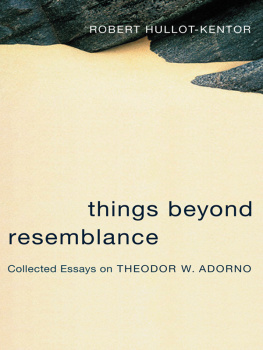

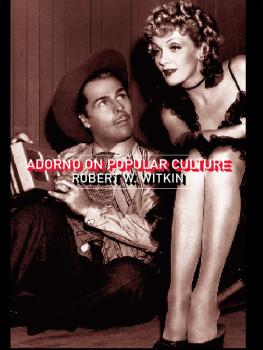
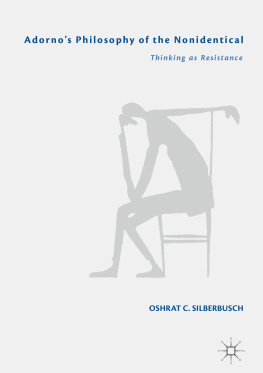
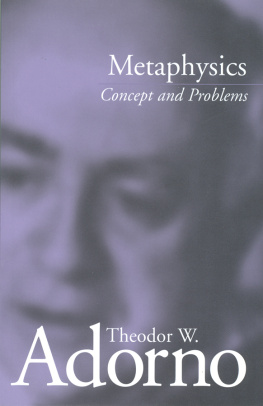
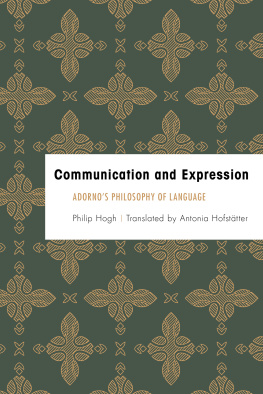
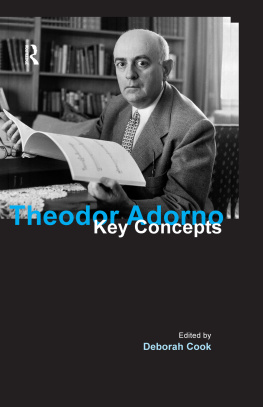
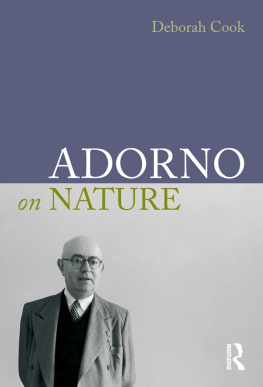
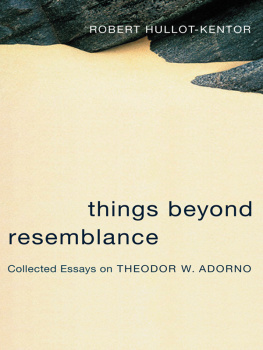
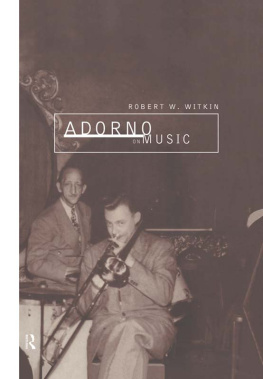


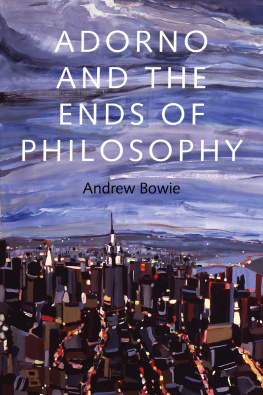
 COLUMBIA UNIVERSITY PRESS NEW YORK
COLUMBIA UNIVERSITY PRESS NEW YORK